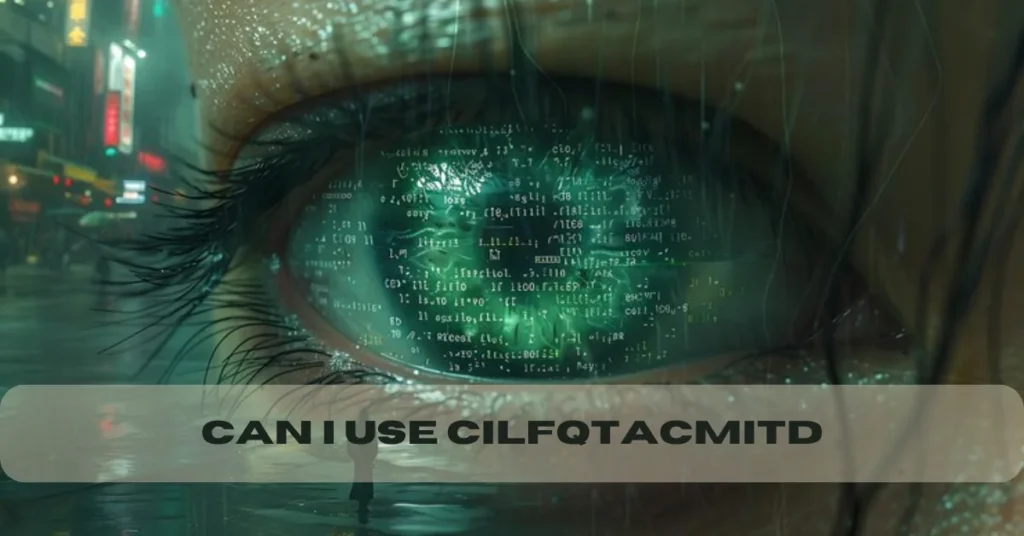Introduction
What Is “cilfqtacmitd” Anyway?
Ever stumbled across a term so baffling that it made you stop mid-scroll? That’s exactly what “cilfqtacmitd” feels like. It’s cryptic, a little bit weird, and completely out of left field. But here’s the burning question—does it mean anything at all?
Why Are We Talking About It?
In the wild west of the internet, strange terms pop up out of nowhere. Sometimes they’re a code, other times they’re pure noise. So, naturally, curiosity (and a bit of caution) pushes us to figure out whether “cilfqtacmitd” is worth our attention—or if it’s just another digital mirage.
The Rise of Cryptic Keywords
The Internet’s Love Affair with Strange Terms
We’ve all seen it—words or phrases that don’t seem to make sense but somehow grab attention. From meme culture to marketing gimmicks, the internet is brimming with oddball terms that take off like wildfire.
SEO and the Weirdness Factor
SEO isn’t just about clean, neat keywords anymore. Sometimes, the weirdest phrases capture the most eyeballs. Remember when “covfefe” became a trending search term overnight? That’s the power of curiosity and confusion combined.
Decoding “cilfqtacmitd”
Possible Origins
Could it be a typo? A mashup of random letters? Or maybe an acronym that only a select few understand? The truth is, its origins are as mysterious as the term itself.
Is It a Code or Just Gibberish?
We’ve run it through acronym finders, code decoders, and even linguistic databases—so far, nothing solid. This suggests it may just be digital noise, unless someone out there is playing a very long game.
Technical Analysis
Breaking Down the Term
At first glance, “cilfqtacmitd” looks like a string of random letters. No recognizable prefixes, suffixes, or patterns jump out. It doesn’t align with common linguistic roots from major languages either.
Any Hidden Meaning?
We explored letter frequency, possible ciphers, and even backward spelling. Nada. Sometimes, a string of letters really is just that—a string of letters.
SEO Implications
Can You Rank for “cilfqtacmitd”?
Here’s the thing—because it’s so obscure, you could easily rank #1 for it. But ask yourself: who’s actually searching for this term, and why?
Keyword Research Tools’ Take
We plugged “cilfqtacmitd” into popular SEO tools. Result? Zero search volume, zero competition. That’s both good and bad news, depending on your goals.
Is It a Glitch or a Trend?
How Such Keywords Appear
Sometimes these cryptic terms are born from errors—typos, bugs, or algorithmic hiccups. Other times, they emerge from niche communities and slowly seep into mainstream.
Past Examples of Digital Mirages
Think back to odd internet moments like “asdfghjkl” or “blorft.” Both meaningless, both viral at different points. History loves a good mystery.
Potential Uses of Nonsense Keywords
Creative Branding
If you’re bold, you might adopt a term like “cilfqtacmitd” for branding. It’s memorable precisely because it’s so odd—think of brands like “Häagen-Dazs” or “Google” (which sounded weird at first too).
Placeholder Text
Sometimes, random terms make great placeholders—whether you’re building a site or testing an app. It’s a harmless way to fill space without confusing your dev team.
Expert Opinions
What Marketers Say
Most marketers agree: unless there’s a clear trend or meaning behind a keyword, it’s risky business. Obscure terms rarely pay off unless tied to a viral moment.
Tech Analysts Weigh In
From a tech standpoint, cryptic keywords like this can flag as anomalies. Analysts typically recommend steering clear unless there’s compelling evidence of value.
User Experiences
Stories from Curious Users
A few brave souls have experimented, using strange terms in blog posts or social media. Some saw short-lived spikes in traffic—others, nothing at all.
Any Success Stories?
Rarely do such gambles turn into gold. Most stories end with users shrugging and moving on, realizing their energy might be better spent elsewhere.
Risks of Using Unknown Keywords
SEO Pitfalls
Google’s algorithms are smart. Overloading your site with meaningless keywords can backfire, tanking your SEO rankings rather than boosting them.
Credibility Issues
Random gibberish can make your content look spammy. Users might bounce quickly, and your credibility could take a hit.
Opportunities in Obscure Keywords
Turning Confusion into Clicks
If you’re clever, you can leverage curiosity. Write a compelling piece explaining the mystery—just like this one! People love unraveling a good internet enigma.
Building Curiosity
Sometimes, the mystery alone is enough to hook readers. Even if the term itself is meaningless, the story around it can draw interest.
Should You Invest Time in cilfqtacmitd?
The Business Case
Unless you’ve got a creative angle or a solid strategy, it’s probably not worth sinking time and resources into. Focus on proven keywords first.
Alternative Strategies
Instead of chasing ghosts, target low-competition, high-intent keywords that are actually relevant to your niche.
The Psychology Behind Mysterious Terms
Why Do We Get Hooked?
It’s human nature—we’re drawn to puzzles and mysteries. That little jolt of curiosity? It’s addictive, which is why cryptic terms sometimes blow up.
Clickbait or Curiosity?
The line is thin. Use mysterious terms wisely, and you can craft engaging content. Abuse them, and readers will see through the gimmick fast.
Future of Digital Noise
Will We See More of These?
Absolutely. As long as the internet exists, so will digital oddities. It’s part of the chaotic beauty of the online world.
The Evolution of Search Trends
Search engines are evolving to weed out noise and prioritize meaningful content. But every now and then, a curveball slips through—keeping things interesting.
Conclusion
So, can you use “cilfqtacmitd”? Technically, yes. But should you? That’s another story. While it’s a fascinating example of the internet’s quirky side, it’s likely just digital noise. Unless you’ve got a killer creative idea, your time is probably better spent focusing on meaningful, targeted keywords. But hey, if you’ve read this far, you’re proof that curiosity is a powerful thing—and that’s always worth tapping into.






